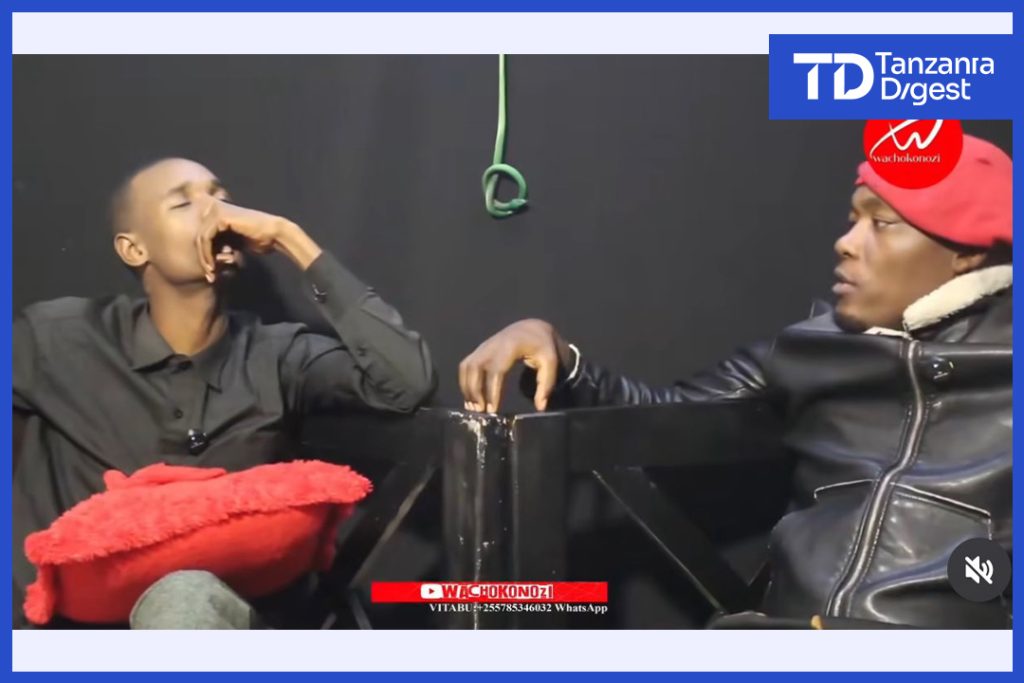The Wachokonozi case was mentioned on 27th June, 2025, before the Arusha magistrates’ Court. The duo were criminally charged with false information and operating without a licence. The duo denied the charges.
This case is extremely crucial since it touches on broader issues of the right to freedom of speech and overt discrimination. What the police are saying, without “wrecking” the merits of their case, some of the Wachokonozi utterances were false! The case hangs on a cliffhanger of determination of judgemental posturing. Two people facing the same facts of a case on false information may draw different findings. Such cases tend to be arbitrary decided.
Experiences of false information in Tanzania vault into censorship, unfortunately. Content creators cannot be critical of the regime in power. The second charge is operating without a licence. This is really an extremely legal stretch.
The problem of such a charge targets political content; therefore, it is categorised as politically motivated. I say so because there are many content creators in Tanzania, but the police rein in on political dissent. Those who lambast alleged government gross misconduct are the ones who are vulnerable to police excesses.
This charge, to say the least, is discriminatory and a form of political persecution. The duo have been granted bail. That is the only good news I can share here.
Based on the details of the “Wachokonozi case” (Jackson Kabalo and Joseph Mrindoko), here is a balanced analysis of their charges and the broader implications:
⚖️ Legal and Human Rights Perspective.
1. Charges of “False Information” (Cybercrimes Act, Section 16).
– The accusation hinges on alleged “false” political commentary, but critics argue this charge is often used to silence dissent. The Tanganyika Law Society (TLS) explicitly states that “criticising public figures is not illegal” under Tanzanian law and falls under personal freedoms.
– The vague wording of cybercrime laws risks misuse for political suppression, especially against satirical content creators like Wachokonozi, who discussed the demeanour of political figures, national debt and elections.
2. Operating Without a License (EPOCA, Section 116(3)(b)).
– While licensing aims to regulate online content, applying this to independent podcasters raises concerns about “overreach”.
Many creators globally operate without formal licenses, and mandating them could stifle grassroots journalism.
– Critics, including legal advocates, view this charge as a pretextual tactic since Wachokonozi’s YouTube channel (33,000+ subscribers) operated openly before arrests.
- A licence in Tanzania costs around $990 annually, which puts off the majority of content creators. Moreover, even the police have no operating licence.
- Making it mandatory for independent podcasters to have an operating licence is not only discriminatory, harsh, and unconscionable but also a slap on the face of a government aiming to create over 10 million jobs in the next five years.
- Wachokonozi are self employed, and this government is hellbent to terminate their creativity, talent and tenacity towards self employment.
- Operating without a licence ought to apply to registered companies, not those operating under the umbrella of informal sector.
🚨 Procedural and Human Rights Concerns.
– Arrest Methodology:
Initial reports described their detention as an “abduction” by unidentified men in a white Land Cruiser (a vehicle linked to past enforced disappearances). Police later confirmed the arrest but provided unclear details about their whereabouts initially, violating due process.
In a case of Babu Seya na mwanawe, the African Court of Justice ruled that their rights to a free and fair hearing were irretrievably taken away when they were not informed of their rights during police arraignment.
Similarly, here, failing to observe basic chain of arrest regulations ought to lead to the restoration of the Wachokonozi freedoms.
– Equipment Seizure:
Authorities confiscated cameras, phones, and computers during the arrest, potentially compromising their ability to defend themselves or continue work.
– Legal Advocacy:
TLS lawyers and THRDC representatives are challenging the arrests, demanding transparency and condemning the criminalization of satire.
🌍 Broader Context in Tanzania.
– This case aligns with a “pattern of suppressing critical voices”, including abductions and arrests of dissidents, which have drawn condemnation from the UN/EU.
– The government’s use of cyber laws to target commentators reflects tensions between “national security narratives” and “digital freedoms”.
💡 My Take.
– Legitimacy of Charges:
The “false information” charge appears politically motivated given Tanzania’s shrinking civic space. Licensing requirements for online content creators are impractical and may violate freedom of expression under international law.
– Procedural Fairness:
The arrest’s opacity and equipment seizures undermine judicial integrity. Granting bail is positive but doesn’t negate concerns about initial due process violations.
– Bigger Picture:
This case tests Tanzania’s commitment to democratic values. If upheld, these charges could set a precedent to muzzle all critical online speech under the guise of “regulation.”
The next hearing on “July 21, 2025”, will be pivotal in determining whether Tanzania’s judiciary prioritizes legal fairness or political compliance.

